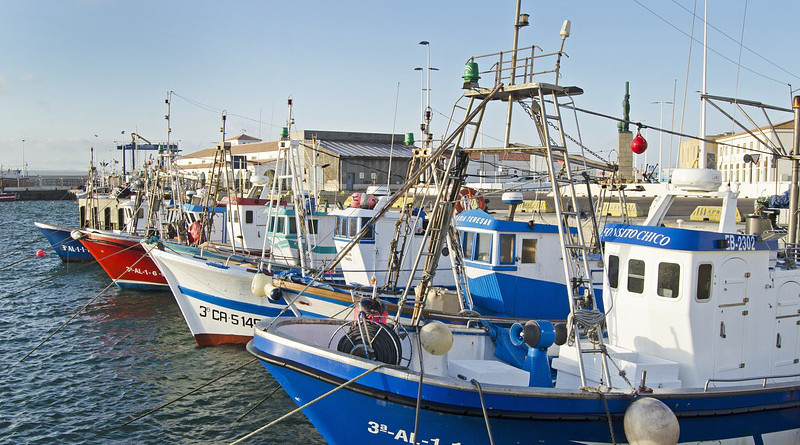European Fishing Communities Face Their Own Specific Climate Risks
Of all European fisheries and coastal communities, the ones in the UK and the Eastern Mediterranean have the highest risk of being affected by climate change. Marine researchers working in Denmark, the UK and the Netherlands published the outcomes of a comprehensive study in the leading scientific journal PNAS this week. To reduce climate risks, they are advising regional policy makers to focus on sustainable and diverse fisheries management.
Throughout Europe, millions of people depend on fishing for their food and livelihood and as an important aspect of their cultural heritage. In the near future, ocean warming will influence the local distribution and abundance of fish and shellfish species and thus, have major consequences on local businesses.
Results on the regional level
In a very broad but nevertheless detailed new study, marine ecologists from research institutes in Denmark, the United Kingdom and the Netherlands have investigated the climate risk of regional fishing communities. The scientists have zoomed in on the fish population level rather than only looking at the species level. This resulted in a fleet- and region-based analysis.
“One of our most important findings”, says co-author Myron Peck from the NIOZ Royal Netherlands Institute for Sea Research, “is that even in relatively wealthier countries like the UK, there are big regional differences with some, though not all local fishing communities, at high risk.” Overall, the United Kingdom and countries like Greece, Romania, Bulgaria and Croatia face the highest climate risk. Peck: “Communities may be fishing on only one species, of which the numbers can drop due to climate change, or fisheries have invested in only one type of gear that cannot be used on different fish species.”
Solutions need to be tailored
Different risk profiles for geographic regions in Europe stress the need for very local adaptation approaches. John Pinnegar, climate scientist at Cefas, the Centre for Environment, Fisheries and Aquaculture Science, UK, says: “Climate risks vary both across and within countries. Our research suggests that while some coastal communities and fishing fleets will find it relatively easy to adapt others may find it far more difficult.”
In their study, the scientists suggest that countries such as Denmark, Finland and Belgium should focus on higher fleet resilience, while the Baltic States should enhance social safety nets through, for example, income support or alternative livelihoods. The UK and South-eastern European countries will have to adapt in both fields.
Pinnegar: “Fleets and regions can be at risk for very different reasons, meaning that solutions will need to be tailored to account for local factors and impacts, rather than trying to apply a one-size-fits-all approach in all situations. For instance, in some areas financial support may help, in order to purchase new fishing gears and therefore target non-traditional, incoming fish or invertebrate species such as squid. Elsewhere, interventions that improve fleet profitability or socio-economic resilience might be more effective.”
Implement conclusions into policies
The scientists constructed the climate risk analysis by considering the climate hazard, exposure, and vulnerability of the fishing fleets and coastal regions. “Together, these factors enable us to draw conclusions that can be implemented into policies”, says Peck. “In fact, our results will be taken up in the next IPCC climate advice early next year.”
The researchers are advising policy makers to focus on sustainable management of the living marine resources on the one hand, and on diversification of fishing fleets on the other. Strengthening of both factors would significantly lower climate risks for local fishing communities. Pinnegar: “This research can be used by fishers and fisheries managers to look ahead and plan future adaptation actions.”
Unique and holistic study
According to the researchers, their study is a unified and holistic approach to characterize climate risk, encompassing biological, economic and sociological aspects. The scientists took into account 556 populations of fish and assessed the relative climate risk of 380 fleets and 105 coastal regions throughout Europe. Peck: “It is the first time that such an extensive assessment has been done for this part of the world. Although it was performed by ecologists, the study profited from information gathered in the EU CERES and FutureMARES projects, a cooperation between a wide variety of sciences, from biogeochemists to economists and members of the fishing industry.”

